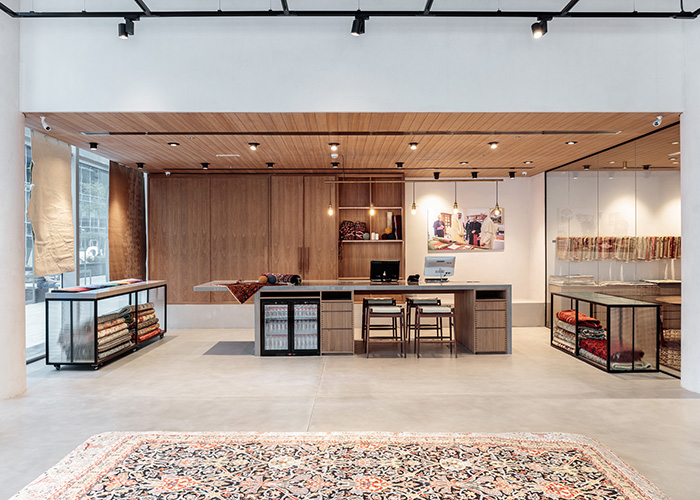Career Profile: Lindie Kramers, Chief Marketing Officer at Istoria Group
As part of our Career Profile series, we caught up with Lindie Kramers, Chief Marketing Officer at Istoria Group. We are sure you can find inspiration from Lindie’s exciting journey that you can apply to your own creative career.
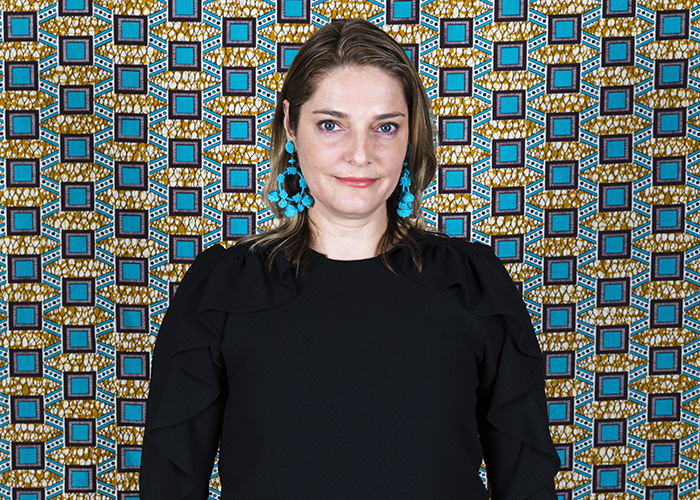
Lindie Kramers, Chief Marketing Officer at Istoria Group
Please could you introduce yourself and Istoria Group?
I’m Lindie Kramers. I was born and raised in Cape Town, South Africa and I moved to London when I was 18. A few years ago, I swapped London for Bath and joined Istoria Group as Chief Marketing Officer, I’m responsible for marketing, new business, PR and social across group agencies, in the UK and US.
Istoria Group is an independent collective of creative agencies with distinct but complementary skill sets, made up of exhibition and event designers Ignition; retail, hospitality and brand designers Phoenix Wharf and experiential digital agency Tiny Spark. We offer clients access to a raft of specialist talent, all based in a single, collaborative office space. Clients can decide if they want to work with a single specialist agency, or else liaise across the group via a single point of contact for all creative and design needs.
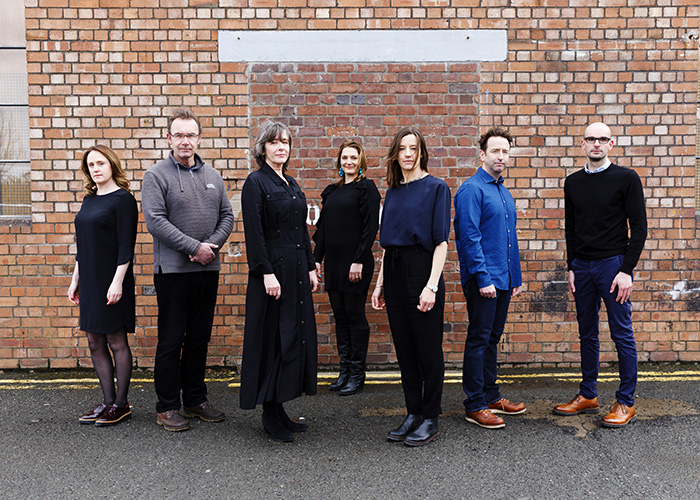
Istoria Group Leadership Team, photographed by Martin Parr
When did you discover that you had a passion for design?
As a teenager, I first began to think about a career in advertising. South African agencies were having a real golden period at the time. I came to England for a gap year when I was 18 – little did I know I’d never go back – and stayed on to do a degree in marketing and design. I thought then, as I do now, that you can’t market design unless you know how things are made – and neither can you design unless you understand how something will sell and to whom.
In the third year of my degree, I worked for a large ad agency on an internship and quickly realised it definitely wasn’t for me as an industry. Branding was much more in line with my interests and I went on to work in that field, before expanding into other types of design.
What is your educational background?
I matriculated in South Africa with languages, maths, biology, geography and typography. Then I took a joint degree (1st) in Marketing and Design Studies at Guildhall in London, followed by getting chartered marketer status through CIM.
What was your first step onto the career ladder? What did you learn from this role?
My first career move was with WPP, joining what was then the largest brand consultancy in the world. It was both inspirational and invaluable to learn from such a breadth and depth of a talent pool, and to surround yourself with the best minds and tested processes and procedures. I made the most of the opportunity to learn by volunteering for company pro bono projects for example, including my very first naming job – ‘The Tick Tock Club’ for Great Ormond Street Children’s Hospital, linking its Peter Pan copyright legacy donation with the new heart unit (ticker = heart, and tick tock = the clock in Peter Pan, plus time’s running out for critically ill children who are sent to GOSH as a last resort). It is always lovely to see a passion project succeed and since its launch in 2006, the Tick Tock Club has raised over £43 million to help create three world-class clinical centres and new state-of-the-art iMRI Suite at Great Ormond Street Hospital.
As well as learning from the best, it also taught me about what I personally didn’t enjoy about big agency life. I learnt that I wanted to work for independent agencies, where you can apply best practice learnt from the large agencies but also be agile and make the biggest difference as you’re not effectively bound by shareholder reporting.
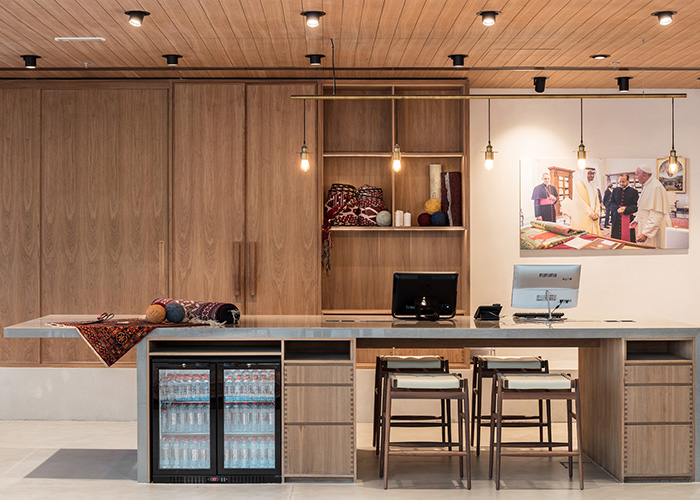
Zuleya interior in Dubai by Kinnersley Kent Design
How did your career progress?
I discovered a passion for independent agencies. I worked across the design spectrum, from start-ups to established companies – and across design disciplines – from branding, brand experience and corporate reporting, to retail and hospitality interiors agencies.
I spent almost two decades at London’s biggest-name design and brand agencies, where I helped established agencies who had lost their way a bit to re-invent themselves in order to remain relevant, as well as helping launch a start-up branding agency, whose innovative approach was so outstandingly successful that the company grew big enough to merge with Conran Design Group. I was also fortunate enough to be involved with setting up a Middle Eastern office for one agency at a key strategic juncture, which went on to become their most successful.
What were your highlights during this period?
Helping each agency I worked for find its niche was very rewarding. My work took me from opening international offices and doing some very satisfying pro bono work to working right across the client spectrum from corporate behemoths to start-ups and royalty. I have directed brand strategy work for clients such as Marks & Spencer, Waitrose, The Athenaeum Hotel, Alexa Chung, Oxfam, Bateel and Great Ormond Street Hospital. I also travelled extensively to the Middle East for client work – from Dubai and Abu Dhabi to Qatar and Saudi Arabia.
More recently, it was a great honour for Ignition (part of Istoria Group) to receive The Queen’s Award for Enterprise in Sustainable Development, the highest honour that can be bestowed on a British business and the only events company ever to achieve this accolade.
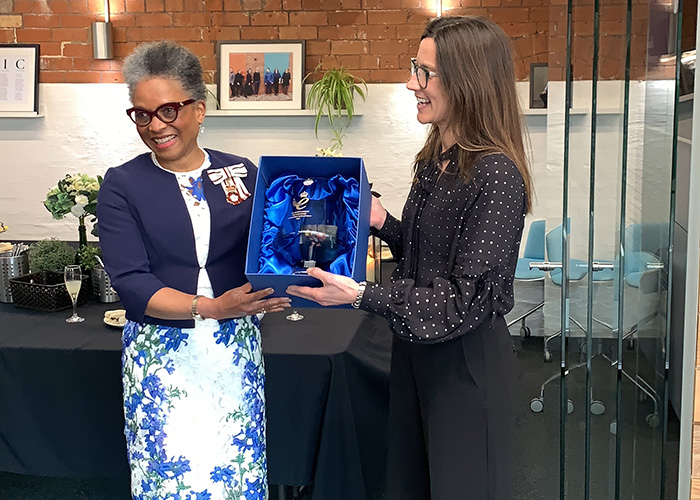
Sam Rowe, CEO Ignition & Istoria Group receiving The Queen’s Award for Enterprise in Sustainable Development from Mrs Peaches Golding OBE CStJ, Her Majesty’s Lord-Lieutenant for Bristol
Name any key projects you’ve worked on and why were they so important to you and your career path?
My first naming project for Great Ormond Street Hospital’s Tick Tock Club was the first of many I was involved in. I learnt the importance of how having a good strategy – based on meaningful links to a brand that resonates with the audience – goes a long way towards launching a successful brand / product /experience.
I also led a rebranding, repositioning, naming and interiors project for FBMI – Fatima Bint Mohamed Bin Zayed initiative. This is a social enterprise and joint venture between HH Sheikha Fatima Bint Mohamed Bin Zayed of Abu Dhabi and Tanweer Investments in Afghanistan. The venture empowers women in Afghanistan by teaching them the ancient art of hand-knotting carpets. In return, they get paid fair wages and can access schooling for their children and free healthcare for the family, all provided by FBMI. Everything is fully circular too, with the wool coming from local farmers and nomads and local plant dyes used to create the colours. The wool and pattern are delivered to the women’s homes and they work from there. We launched a new brand called Zuleya, which is the retail arm selling the hand knotted Afghan carpets in the Middle East. The Crown Prince of Abu Dhabi often gifts peace rugs from FBMI to international dignitaries.
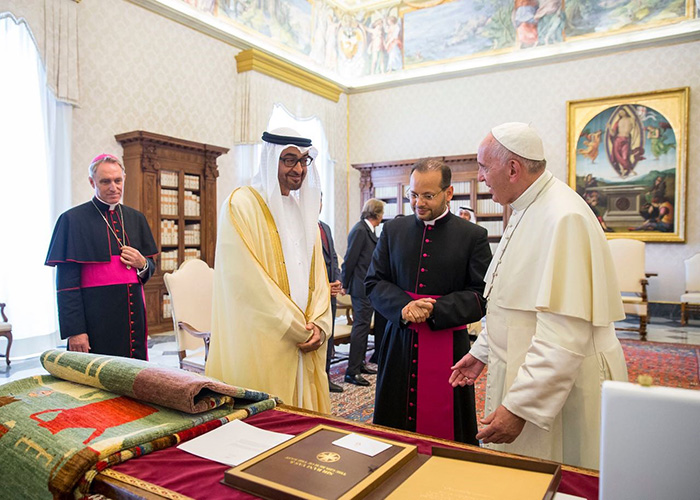
Sheikh Mohamed bin Zayed, Crown Prince of Abu Dhabi and Deputy Supreme Commander of the Armed Forces, gave the FBMI “Pontifex Carpet” to the pope during a visit to the Vatican
I led the team behind the creation of the first overseas Waitrose to anchor The Dubai Mall. Adapting an English brand for the Middle Eastern market was a challenge I really enjoyed. The project has won numerous awards, most notably ‘International Food & Supermarket Design of the Year’ and ‘Best Retail Design’ at the Decade of Design Awards.
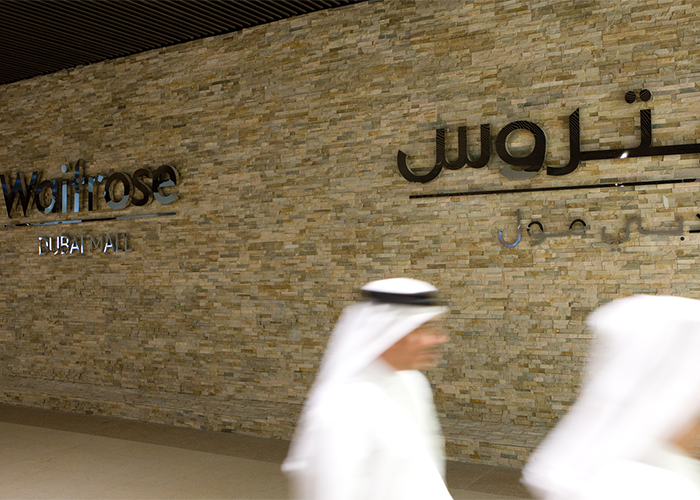
Waitrose Dubai Mall, Kinnersley Kent Design
My first hotel branding project was for The Atheneaum in London. The ‘Stay Individual’ brand proposition is something I am really proud of.
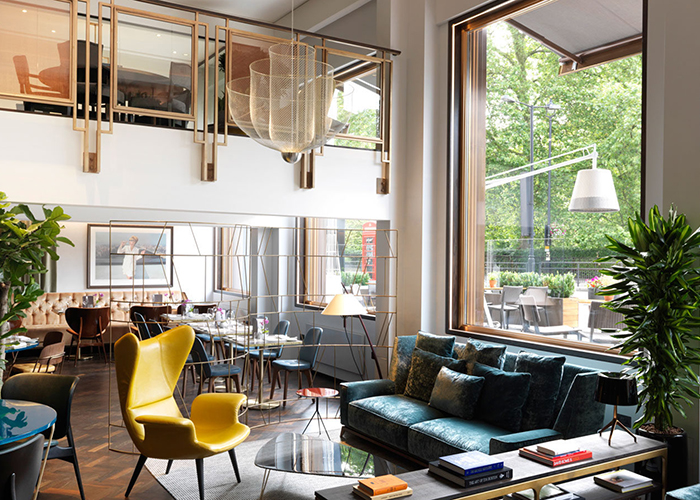
The Athenaeum Hotel, by Kinnersley Kent Design
What core skills have you developed?
I’ve developed the usual skills associated with the nature of my different roles – from naming, brand strategy, design management, marketing, new business, PR and social, through to motivating, inspiring and leading teams and clients, whilst managing expectations.
I’ve also learnt a lot about successful change management. I thrive on challenges and transformational ideas. I have learnt how to envision what quantifiable success might look like, both for Istoria Group and our clients. My personal business philosophy is based on integrity in business and the power of collaboration to create output that is not only beautiful and clever, but useful and of enduring value.
I’ve also learnt about business etiquette and how to conduct business internationally. I’ve had the great opportunity to learn about cultural differences and help educate clients and brands in design standards, including clients who saw British Design as the best in the world – and to help make a difference internationally.
Why did you decide to join Istoria Group?
In 2016, I left London for Bath and thought it was high time to readdress the work-life balance. A great recruitment agent helped me investigate agencies in Bath and Bristol. He happened to know Sam, our CEO, and thought we’d be a good fit.
I particularly liked the Group’s founding ethos of balancing people and planet with profit. And the leadership team is admirable. The group never had a marketing function before. They had a fantastic business model, talented individual agencies and great clients but the group and agencies weren’t represented in as strong a light as they could be and Istoria Group was definitely the best kept secret. There was so much potential to make a marked difference and to become known. I joined without any hesitations and couldn’t wait to start unlocking all that hidden potential!
We rebranded to Istoria Group which is now made up of core sister agencies – with distinct but complementary skill sets; and an incubator hub, where we help promising start ups outside of our core skill sets to grow and flourish through providing investment, mentoring and office space. We share a single set of values across the Group that is EPIC – Entrepreneurial, Personable, Intelligent and Collaborative.
It was a privilege to introduce a fantastic new marketing, business development, PR and social team and we are extremely proud of the recognition we’ve received across the group to date in terms of new business wins, press coverage, award wins, accreditations, invitations to speak on specialist subjects, and so on.
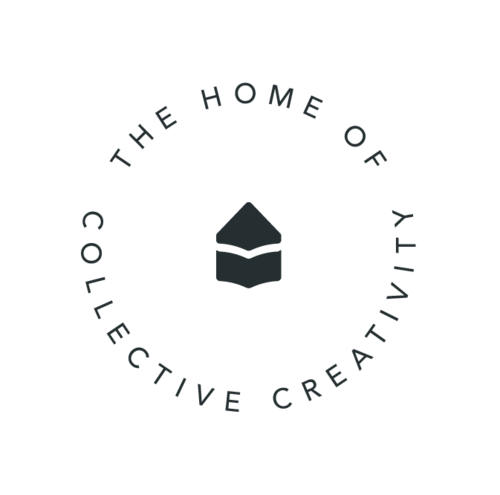
Do you have a particular ethos when it comes to design?
I believe in the notion of responsible, intelligent design. It simply means the thinking comes before the doing, every time. In practical terms it’s about helping clients align business objectives with brand values and customers’ needs. It’s about balancing creativity with commerciality to create beautiful and enduring brands, environments and communications in a responsible way.
What advice would you give to young designers beginning their profession?
Learn from the best and then follow your passion, wherever that may lead you. And know your worth. Never work just for the money or for companies that don’t value you. Ensure you have a good work life balance – it’s not only good for you but also the people you work for.
What are your plans for the future?
The first would be a complete dream – to buy land in Southern Africa and run a wildlife sanctuary, providing employment and preserving wildlife.
The second would be to create the perfect product that makes a difference, influences people’s lives, is run on a completely fair trade and fair pay basis and is completely sustainable and circular – and can be transformed into something else when its life cycle or relevance expires. I’m still figuring out what that may be!
